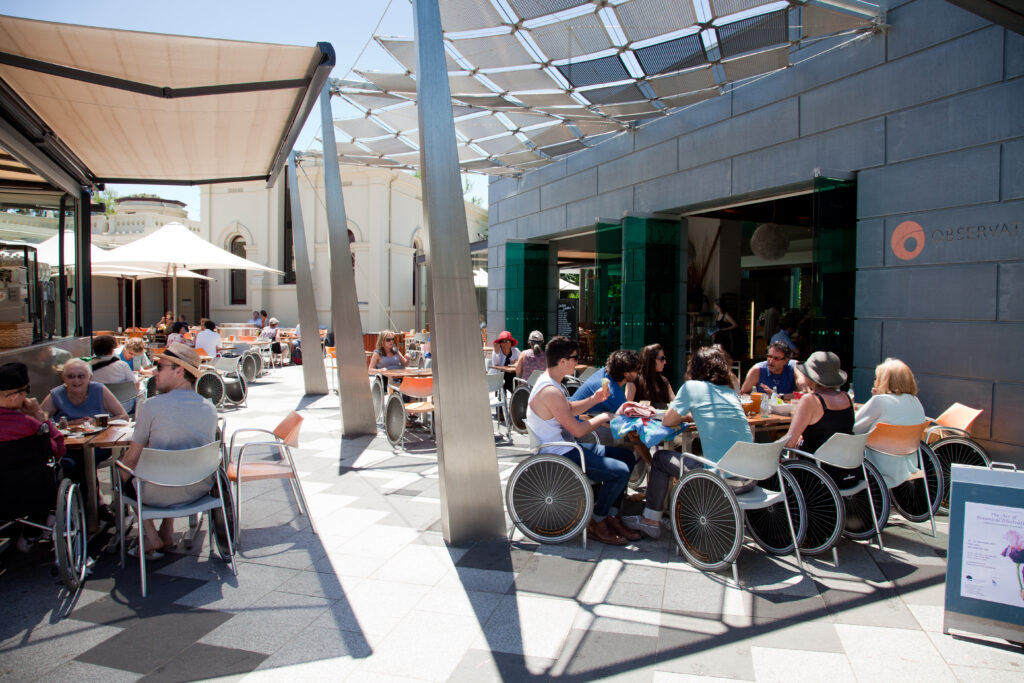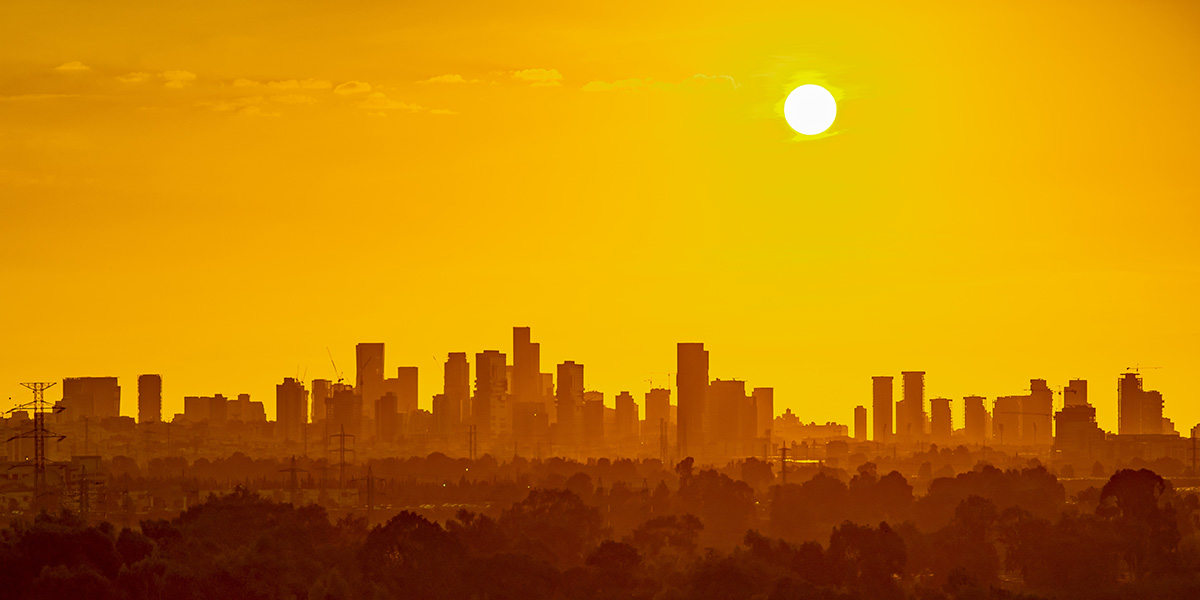by Jack Hall
I spent nine months of 2022 discovering how seven people living with spinal cord injury experience extreme heat in Melbourne. I then used that research to find patterns, and develop a better understanding of how systemic changes in city planning can improve the experiences of many more than just those seven people.
My journey into the project started in early 2022. I was working with a team of consultants who had partnered with the National Disability Insurance Agency (NDIA) to make the NDIS more financially sustainable, safeguarding the scheme for those who need it. I had heard of the NDIS before, but this was my first introduction to the inner workings of the program, and my first insight into how crucial its effective functioning is to the lives of many Australians living with a disability.
The two-month-long project was in many ways confronting – at times it became startlingly easy to reduce the lives of real people into numbers in data sets, cost projections and service categories. However, through my learning, I recognised the importance (and the necessity) of valuing individual human experience, and how real progress can’t be made without it.
I took what I learned from this project, and I decided to combine it with my deep interest in environmental science and the climate crisis to form a research question for my Honours year.
The question I settled on was this: What are the experiences of people living with a spinal cord injury (SCI) during periods of extreme heat (or heat waves) in Melbourne? This is a deeply complex question, and became the subject of hours of detailed interviews, constructive conversations and ultimately a 20,000 word research report.

I chose this particular line of inquiry as part of my research because I am aiming to highlight the systemic barriers that exist to full participation in urban society that many people living with SCI and physical disability experience. I hope to call attention to certain areas within transport and infrastructure planning that can be more equitably designed.
I hope that my research can help to bring about challenging, productive and necessary conversation, leading to tangible improvements in the experiences of people who call Melbourne home. Given our warming climate means the intensity and frequency of heatwaves is increasing, in Melbourne as in many parts of the world, getting this right will only become more critical.
Summary of findings
A core tenet of my work (and indeed much of the contemporary academic literature on similar issues) is that physical disability is not a health issue that needs to be ‘fixed’, but rather ‘disability’ is socially constructed, and is the result of interactions between people living with impairments and the physical environment.
Using the knowledge that Melbourne’s urban environment, by virtue of its physical design and its relationship to people with SCI, is disabling, I argue that this spatial inequality can expose people with SCI to more severe impacts of extreme heat.
Through my work, three findings stand out:
- Accessibility can be understood in terms of time, not just in terms of space.
It is probably fairly easy to imagine and identify the role of space in limiting accessibility. Architecture (or the lack thereof) like ramps, elevators, etc. can make spaces more accessible or less so. It is also important to consider how time can be an element of accessibility. By forcing (for example) people in a wheelchair to wait longer for an accessible tram, an unspoken yet clear message is being sent about whose time is more valuable. Given exiting a car often takes much longer for a person with an SCI than an able-bodied person, in a situation without adequate shade people can be forced to endure harsh heat conditions for longer for no other reason than that they are disabled.


- Shade is crucial to effective mobility, both while using public transport and more local navigation.
Shade crosses over many of my key points. Relief from the sweltering heat is often limited in densely urbanised environments, where the cooling effects of trees are replaced by the heat-absorbing monoliths of multi-storey skyscrapers that intensify experiences of heat. Ensuring that ample shade, both natural and man-made, is made available to all people across the spectrum of physical ability is critical. Urban geographers have known about the Urban Heat Island Effect (how heat is magnified in urban spaces) since at least the 1870s, but have only recently started to recognise what that may mean in a warming climate.
- Effective cooling systems (like air conditioners) are not a requirement in social housing units like heating systems are.
Finding this out shocked me. One of the people I interviewed for my study told me that he would pour buckets of cold water over himself every day and every night to cool down in summer because his room was so hot and the hallways were worse. Legislation that requires the installation of working air conditioning in public housing and in rental properties is urgently required as Melbourne heats up.
My full thesis itself goes into much more detail than I can here – if you’d like more detail, I’d be very happy to share the full document with you. My contact details are at the end of this article.
Staying cool in the hot Melbourne summer can be challenging. Systemic change can take time, and while the political machinery grinds on, the heat doesn’t stop.
Many of these may be familiar to you, but these tips I learned from the people I spoke to might help you to cool down during summer:
- Sitting beneath a cold shower
- Carrying a wet wash cloth for your neck
- Getting friends/family to dump water over you
- Portable fans
- Ice cubes in hat/water bottle
- If possible, set up an umbrella
If you’re interested in getting involved with making change happen in Melbourne, please get in touch with the Public Transport Users Association via their website or contact me at [email protected].
- June 12, 2023




